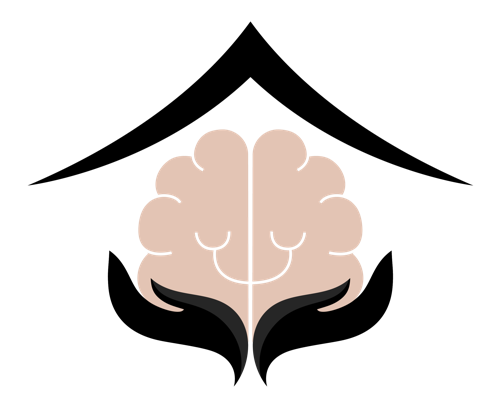You’ve just completed an ADHD (Attention Deficit Hyperactivity Disorder) screening test in St. Petersburg, FL. You might be feeling a little anxious, curious, or even a bit relieved. The screening process is a big step toward understanding how ADHD might be affecting your life, but what happens after the test? What do you do with the information you get?
In this article, we’ll take a look at what to expect after an ADHD Screening Test in St. Petersburg, FL, how the results could affect you or your child, and the following steps to take for managing ADHD effectively.
Understanding the Results of ADHD Screening Test in St. Petersburg, FL
The results of an ADHD screening can be both a revelation and a starting point. If you or your child was diagnosed with ADHD, the first step is understanding what that means. ADHD isn’t just about “being hyper.” It’s a complex condition that affects attention, focus, impulsivity, and executive functioning.
Once you receive your results, take time to process them. While some people feel relief in knowing what’s going on, others may experience a range of emotions. It’s perfectly normal to feel uncertain, worried, or even frustrated. But remember, a diagnosis is the first step toward positive change.
Consulting with a Professional: Next Steps in Diagnosis
After the screening, the next step is often a follow-up consultation with a healthcare professional. A screening test gives a good overview of ADHD symptoms, but it doesn’t provide a full diagnosis. An ADHD specialist — such as a psychologist, psychiatrist, or pediatrician — can provide a more in-depth evaluation.
During this consultation, the professional will discuss the results in detail. They may ask you or your child more specific questions and review the symptoms you’ve experienced. Based on this, they can confirm whether or not ADHD is the right diagnosis and what type of ADHD it is (there are three types: inattentive, hyperactive-impulsive, and combined type).
If ADHD is diagnosed, your specialist will explain how this impacts your life. They’ll also help you understand which areas need more attention and suggest coping strategies and treatment plans.
Exploring Treatment Options
Once you have a diagnosis, the question becomes: what now? There are a number of treatment options available for managing ADHD. These include medication, therapy, and lifestyle changes.
Medication is often prescribed to help regulate attention and reduce impulsivity. However, many people find that therapy plays an important role in managing their symptoms over the long term. Cognitive-behavioral therapy (CBT) is particularly effective for children and adults with ADHD. CBT helps people develop skills to manage their focus and behavior.
In addition to therapy, lifestyle changes can also make a big difference. Maintaining a structured routine, breaking tasks into smaller steps, and setting reminders can help manage daily responsibilities. Regular physical activity and a balanced diet can also improve focus and mood.
Involving Family and Friends
ADHD doesn’t just affect the individual with the diagnosis; it can impact family members, friends, and other people close to you. This is why involving your loved ones in the process is so important.
Talking openly about ADHD can help reduce stigma and create a more supportive environment. If your child has ADHD, getting teachers, caregivers, and family members on board will help them succeed both at home and at school.
It’s also a good idea to join a support group, where you can meet other people going through similar experiences. Being part of a community that understands ADHD can provide emotional guidance and practical tips for coping with everyday challenges.
The Importance of Routine and Structure
After taking the ADHD Screening Test in St. Petersburg, FL, I learned that one of the most important strategies for managing ADHD is creating structure in daily life. People with ADHD struggle with organization, time management, and following through on tasks. Having a routine in place can significantly reduce these challenges.
Start by setting clear goals, creating lists, and breaking larger tasks into smaller, manageable steps. Use tools like calendars, timers, or digital reminders to stay on track. This can help you maintain focus and guarantee that important tasks are completed on time.
Children need to follow a consistent daily routine. Routines provide a sense of security and lower anxiety, making it more comfortable for them to focus on their studies and other responsibilities.
Staying Positive and Patient
Managing ADHD is a long-term journey. While the diagnosis can feel overwhelming at first, remember that it’s not the end. It’s the beginning of a new chapter in learning how to cope with the challenges ADHD brings.
Be patient with yourself and with your child. Finding the right treatment and strategies takes time. It’s important to celebrate small successes along the way and stay optimistic about the progress being made.
Setbacks are normal but don’t lose sight of your goals. With the right support and strategies, managing ADHD becomes easier and more manageable.
Regular Follow-Ups and Monitoring Progress
ADHD management isn’t a “one-and-done” process. You’ll likely need to revisit your treatment plan periodically. Consistent follow-up visits with your healthcare provider will help you track progress, adjust medications if needed, and refine strategies that are working.
This process helps guarantee that the treatment plan continues to be effective over time. It also gives you the opportunity to voice concerns, ask questions, and get additional support as you go through daily life with ADHD.
Conclusion
After the ADHD Screening Test in St. Petersburg, FL, you are armed with knowledge and resources to take the next steps. From understanding the diagnosis to seeking the right treatments and building supportive routines, every step you take will bring you closer to living a more balanced and focused life. The key is to stay informed, seek help when needed, and be patient with the process. ADHD is no doubt challenging, but if you follow the right strategies, it’s absolutely possible to conquer.
Visit our website to take the next step toward better understanding ADHD and how it affects you or your loved one.



